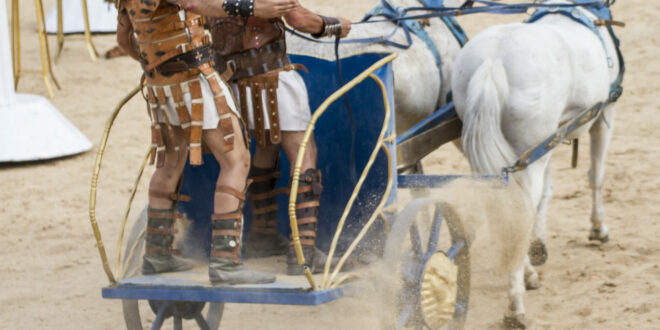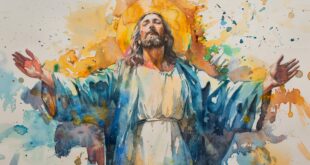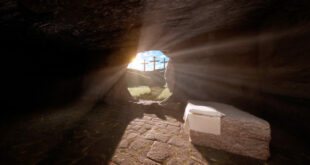Josiah began his reign over Judah when he was only eight years old. He started doing right in the sight of the Lord and walking in the ways of King David. (2 Kings 22-23; 2 Chronicles 34-35).
When he was sixteen, he began to seek after the Lord. He started a reformation. Josiah destroyed the nation’s idolatry and idolatrous practices that his father, Amon, and extremely wicked grandfather, Manasseh, had established. This widespread reform spread throughout the nation of Judah and the territory formerly ruled by the Israelite tribes of Manasseh, Ephraim, Simeon, and Naphtali.
After this was accomplished, he returned to Jerusalem and began the renovation of the house of the Lord. During this time, Hilkiah, the priest, discovered the Book of the Law. It had been neglected for many years before Josiah’s time and then lost. Hilkiah sent it to King Josiah by Shaphan, the scribe. Shaphan then read it to the king.
King Josiah, moved with sorrow and repentance, rent (tore) his clothes because he and his nation had forsaken the Lord and the law. He immediately recognized that the wrath of the Lord was about to be poured out on his country. Josiah went into action. He sent Hilkiah, Shaphan, and four others to Huldah, the prophetess, to enquire of the Lord.
Huldah did not mince her words. She spoke forcefully and plainly that God would pour out his wrath on Judah because they had forsaken the Lord and followed other gods. They had provoked God to an unquenchable anger. But because Josiah had a humble and tender heart, God’s wrath would not fall during his lifetime.
Josiah called an extraordinary public meeting of all the elders of Judah and Jerusalem. Then he read all the words of the Book of the Law to them. He then publicly made a covenant with the Lord and committed himself to keep God’s commandments, testimonies, and statutes and perform the covenant’s words.
He didn’t stop there. He caused all that were present to stand to this covenant with him. Then, he removed the idolatrous abominations in all the lands he controlled and caused his people to serve the Lord their God. And the people did that all the days of Josiah’s life.
Then, they observed the Passover in such a great way that the Scripture says there has not been a Passover like that since the days of Samuel the prophet, over 400 years before that time.
Josiah continued as a godly king for the rest of his life. The Scriptures say about him, “And like unto him was there no king before him, that turned to the LORD with all his heart, and with all his soul, and with all his might, according to all the law of Moses; neither after him arose there any like him. (2 Kings 23:25).
But this remarkable story has a sad ending. Necho, king of Egypt, went to fight against Carchemish by the Euphrates, which would require him to journey through Israel. Josiah decided to intervene. Even though God warned Josiah through Necho (“the words of Necho from the mouth of God,” 2 Chronicles 35:22), he decided to fight Necho, and this decision cost him his life. Josiah was only 39 years old.
There is a warning for Christian servants here. Josiah had lived for the Lord all his adult life. He had been an outstanding leader who loved the Lord and demonstrated that love. Yet, at the height of his power and perhaps at the peak of his spiritual life, he was not listening to the word of the Lord. In this story, the word came from God through an ungodly king, but nevertheless, it came from God. Because he wasn’t listening and obeying, God cut his ministry and life short. I’m thankful God doesn’t always do that with His servants.
Romans 15:4 says, “For whatsoever things were written aforetime were written for our learning, that we through patience and comfort of the scriptures might have hope.” God recorded this story so we could learn.
At all times of our life, walking in close fellowship with the Lord is essential. God has blessed and exciting plans for every Christian. But if we do not have an abiding, walking, loving, daily relationship with the Lord, we can miss those plans and divert to our own plan and method.
To maintain that walk, we must confess and forsake any sin as soon as we know it. It demands that we spend time with Him, abiding in Him. “I am the vine; ye are the branches: he that abideth in me, and I in him, the same bringeth forth much fruit: for without me ye can do nothing.” (John 15:5). “Quench not the Spirit.” (I Thessalonians 5:19). “Trust in the LORD with all thine heart; and lean not unto thine own understanding. In all thy ways acknowledge him, and he shall direct thy paths. Be not wise in thine own eyes: fear the LORD, and depart from evil. (Proverbs 3:5-7)
 The Bottom Line, Ministries Christian News, Articles, & Poetry
The Bottom Line, Ministries Christian News, Articles, & Poetry 





Hi Dale,
Great lesson and message.
You end with my favorite Proverb verse. I say this daily, (3:5-8) and find it so encouraging and a great enforcement of His love and my love for Him.
Thanks for sharing.
God Bless~
What a sad ending to the reign of a Godly king. Just go to show that no matter how close we walk with our LORD, we ought never to grow too comfortable and confident. Humility is the key, isn’t? Thanks Dale for this thought provoking article.